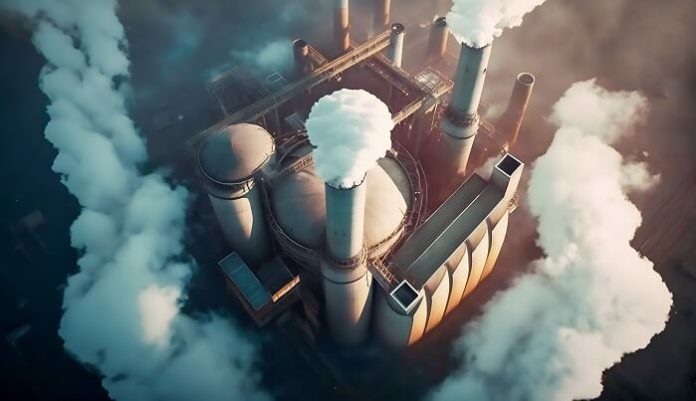In a significant step toward combating climate change, the government is set to introduce a robust policy framework for Carbon Capture, Utilisation, and Storage (CCUS). The initiative aligns with India’s pledge to achieve net-zero emissions by 2070, targeting the capture of CO2 from major industrial sources, particularly in the power and manufacturing sectors, which together account for around fifty percent of global greenhouse gas emissions.
Ajay Kumar Sood, principal scientific adviser highlighted the necessity of adopting CCUS technologies broadly across critical industries. The new policy framework introduces several innovative elements. It proposes the creation of a national portal for CCUS projects to bring stakeholders together on a unified platform, promoting collaboration and information sharing within the industry.
Additionally, the framework sets specific emission reduction targets for different sectors, providing clear objectives for industries to achieve. To ensure the sustainability of CCUS projects, the policy includes mandatory life-cycle assessments to identify potential challenges and opportunities throughout the lifespan of each project.
The government is also working on developing standards for carbon utilisation and transportation, acknowledging the need for detailed guidelines in these areas.
A crucial aspect of the policy is its integration with India’s emerging carbon market and credit scheme, aiming to create economic incentives for businesses to adopt CCUS technologies. This alignment is intended to further India’s climate goals while fostering innovation in green technology.
The captured CO2 is expected to be primarily used in the fertiliser industry, with additional applications in the production of synthetic fuels, chemicals, and building materials. The multifaceted strategy aims to reduce emissions and generate new economic opportunities in green technology.
While standards for carbon capture and storage are already established, the government recognizes that guidelines for utilisation and transportation are still under development. This reflects the evolving nature of CCUS technology and the government’s commitment to leading in climate innovation.
As reported by knnindia.co.in, the policy’s creation involved extensive discussions among various ministries, including Environment, Earth Sciences, and Power, underscoring the need for a cross-sectoral approach to effectively address climate change.






























